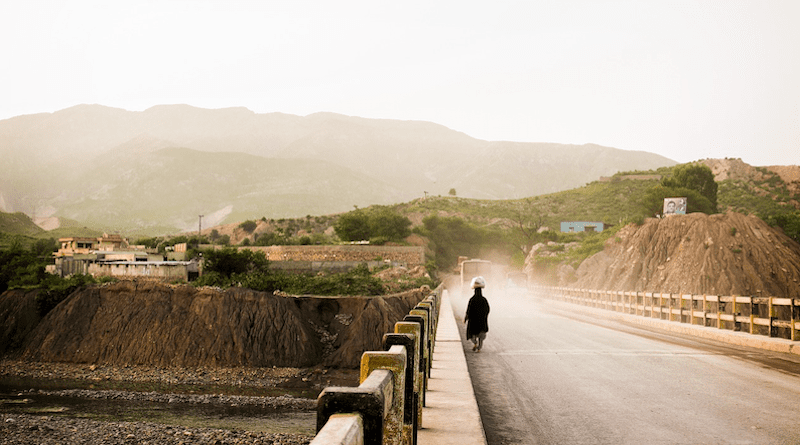Religious Minorities In Pakistan: Social Exclusion Or Equal Citizenship? – OpEd
By Anum Khan
Since 2019, 1169 conversion cases of the minorities have been on record making the divisions as Hindus (88%), Christians (9%), Sikh (less than 1%) and Qadianis (2%). Among 1169 conversions, individual conversions have been only 17%, while 83% are collective in nature. However, in less than 1% cases, girls have either been given back to family’s custody. Furthermore, there have been a few cases of blasphemy law abuse by conservative cults which have been highlighted by the international media.
Since the above statistics are a reality, yet Pakistan’s efforts to ensure protection of minorities’ rights are progressive and credible; however, lack an international spotlight basically for political interests of the stakeholders involved. Under article 20 of the 1973 Constitution of Pakistan, every citizen of Pakistan has the freedom to profess religion and to manage religious institutions. In compliance with Pakistan’s legal framework, presently, there are 2652 Churches (1 church per 664 Christians), 732 Temples (1 temple per 2734 Hindus) and 167 Gurdwaras (1 Gurdwara per 55 Sikhs) in Pakistan; while in the UK, there is one mosque for every 2249 population of Muslims.
It is significant to take into consideration that the Government of Pakistan has taken a non-discriminatory position while implementing the blasphemy laws. Since 2005, 56 individuals, including 45 Muslims, 7 Christians, 2 Hindus, and 2 Qadianis have been convicted on the charges of blasphemy while minorities make up 20% of the entire population in Pakistan. Minorities convicted of blasphemy are given fair trial and they do have right to appeal in higher Judiciary. Acquittal of 5 Christians including Asia Bibi and Shagufta Kausar, and Shafqat Emaneul by higher Judiciary are cases in point.
Apart from the interfaith harmony policy at the Federal level, the Ministry of Religious Affairs has taken a number of initiatives to promote interfaith harmony, including the significant ones that include establishment of district interfaith harmony committees and holding of interfaith harmony conferences and establishment of minorities’ welfare fund for maintenance of the religious places of minorities. For the legal protection of minorities against the Ministry of Human Rights introduced Hindu Marriage Act, 2017 to protect Hindu women against abuse in marriage. Similar effort is underway to introduce Christian Marriage and Divorce Act. Moreover, a grievance cell is also operational to look into complaints of non-Muslims against any threats being faced by them in freely practicing their religion.
Government of Pakistan has been responsive to crimes against religious minorities as in Teri Mandar dispute wherein 117 suspects including 7 main instigators who set ablaze the Hindu Temple were arrested immediately after the incidence; 12 police officials were dismissed and 92 police officials got suspended for their inability to prevent mob violence on Hindu temple in Teri. It is worth mentioning here that events like Teri Temple happen in response to events occurring abroad as in India where Muslims have been subjected to state terrorism under BJP; yet international community has been insensitive to that.
Mainstreaming of Minorities is another constitutional directive and is assigned to minorities’ own representatives through allocated reserved seats in parliament, provincial assemblies, bureaucracy, and army. They have four reserved seats in the Senate, ten in the National Assembly and have been provided proportional reserved seats in all Provincial Assemblies: 3 in Balochistan, 3 in Khyber Pakhtunkhwa, 8 in Punjab, and 9 in Sind, 23 in total. The National Commission for Minorities (NCM) has also been re-constituted with increased membership of those new in majority under the chairmanship of a person from the minority community. To secure their economic status as well, a 5% of quota is also allocated for minorities in all federal services, however, in addition to open merit seats.
Implementation status of job quotas of minorities is a compulsion, however, the only hindrance is lack of required qualification of minorities in order to fulfill the allocated positions. This exists despite the fact that the seven non-Muslim minority communities (Christian, Hindu, Sikh, Kalash, Bahai, Buddhism and Zoroastrianism) have been facilitated with the teachings of their respective religions in consultation with faith scholars. Welfare Measures for Minorities are administrative priorities at state and provincial levels. On December 8, 2020, the government of KP approved endowment funds for minorities. Notably, minority student scholarships have been doubled since 25 Mar 2014. To ensure a sustainable living for them despite the literacy lag, the Evacuee Trust Property Board of the Government of Pakistan on January 2021 approved government funded provision of vocational education for Hindus and Sikhs.
This practice is unlikely to be witnessed in any theological or secular state when the records of religious freedom are scrutinized, let’s say in case of India when its Universal Periodic Review was carried out recently and India has been cleared of the list of states violating religious freedom. Such international scrutinies only emphasize the fact that interests count, rather than realities.
Anum Khan is working as a Researcher at policy institute based out of Islamabad, Pakistan.

